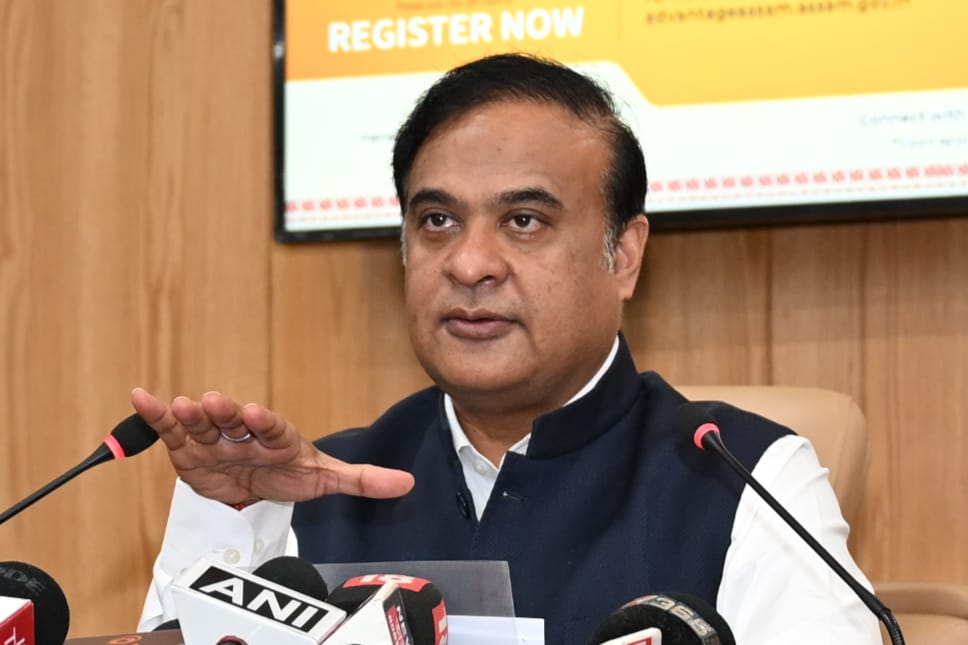Guwahati, April 26: Three days after India suspended the Indus Waters Treaty (IWT) of 1960, Assam Chief Minister Himanta Biswa Sarma launched a scathing attack on former Prime Minister Jawaharlal Nehru, calling his decision to sign the treaty “one of the greatest strategic blunders in India’s history.”
Taking to X, Sarma said Nehru’s move “severely compromised India’s national interests, handing away the bulk of the Indus basin waters to Pakistan under external pressure.”
On April 23, India suspended the treaty following the deadly terror attack in Pahalgam, Jammu and Kashmir, which claimed 26 lives. This marks the first time India has put the agreement into abeyance — not even during the wars of 1965, 1971, or the Kargil conflict of 1999, has the treaty been suspended.

Brokered by the World Bank and signed in 1960, the IWT governs the sharing of the Indus River system’s waters between India and Pakistan. Under the treaty, India has unrestricted rights over the eastern rivers — Sutlej, Beas, and Ravi — while Pakistan controls the western rivers — Indus, Jhelum, and Chenab.
Despite being hailed globally as a resilient water-sharing framework that survived wars and border tensions, the treaty has long been criticised in India for being lopsided.
“Despite India’s natural upper riparian advantage, Nehru, under immense pressure from the American administration and the World Bank, gifted away over 80% of the Indus basin waters,” Sarma said. As a result, Pakistan secured control over around 135 million acre-feet (MAF) of water annually, while India was left with just 33 MAF from the smaller eastern rivers.
Sarma added that India’s rights over the western rivers were limited to minor irrigation and run-of-the-river hydroelectric projects, with no provision for meaningful storage, severely impacting the water needs of Punjab, Haryana, and Jammu & Kashmir. He blamed Nehru’s “misplaced obsession with international approval” for weakening India’s strategic and agricultural strength for decades.

Welcoming Prime Minister Narendra Modi’s decision to initiate India’s withdrawal from the treaty, Sarma hailed it as a “historic body blow to this injustice.” He said Modi’s action reclaims India’s sovereign rights over its rivers and sends a clear signal that the country will no longer “appease terror and hostility with concessions.”
“This bold step strikes at the heart of Pakistan’s fragile economy, where over 75% of agriculture depends on Indus waters,” Sarma said, calling Modi’s move a correction of a “historic betrayal” that had shackled India’s rightful control for more than six decades.
The Chief Minister said the decision symbolises the rise of a “new, assertive India,” determined to defend its interests without apology.
Pakistan, heavily dependent on the Indus system for agriculture, drinking water, and hydropower, has vehemently rejected India’s move.
In a statement, Pakistan’s National Security Committee said: “The Treaty is a binding international agreement brokered by the World Bank and contains no provision for unilateral suspension. Water is a vital national interest of Pakistan, a lifeline for its 240 million people, and its availability will be safeguarded at all costs. Any attempt to stop or divert the flow of water belonging to Pakistan under the Indus Waters Treaty will be considered an act of war and responded to with full force across the complete spectrum of national power.”
Also Read: Meghalaya committed to securing international border, tackling infiltration: Dy CM
Also Watch
Find latest news from every corner of Northeast India at hubnetwork.in, your online source for breaking news, video coverage.
Also, Follow us on-
Twitter-twitter.com/nemediahub
Youtube channel- www.youtube.com/@NortheastMediaHub2020
Instagram- www.instagram.com/ne_media_hub
Download our app from playstore – Northeast Media Hub





